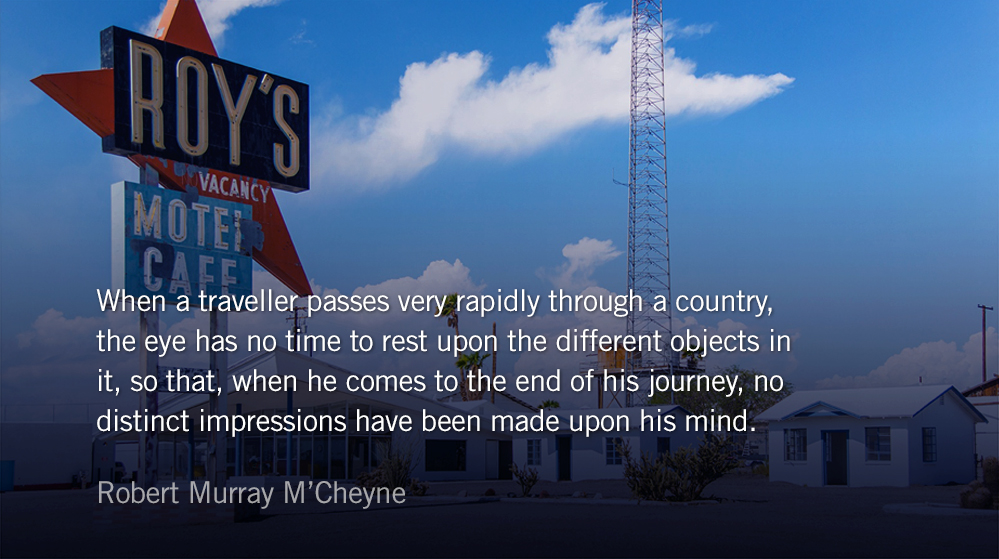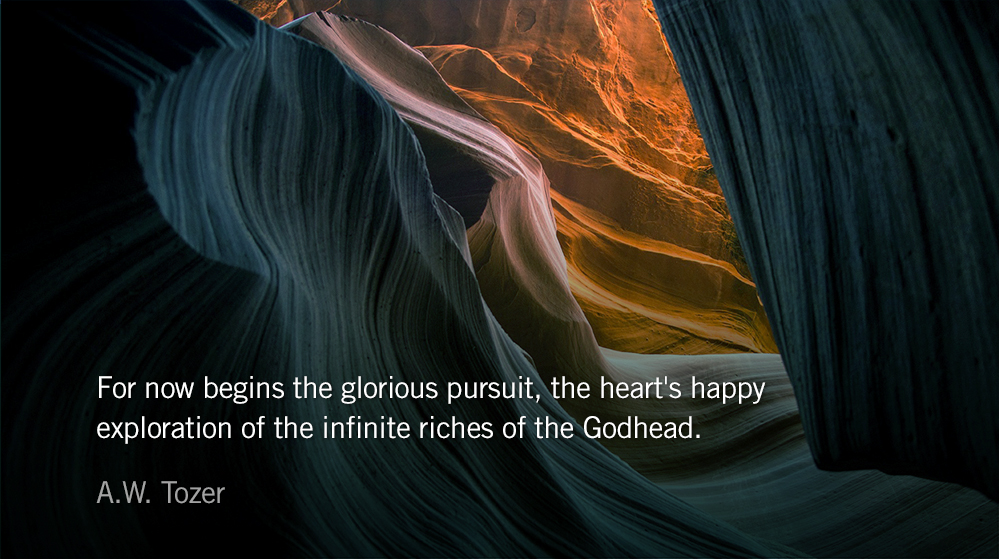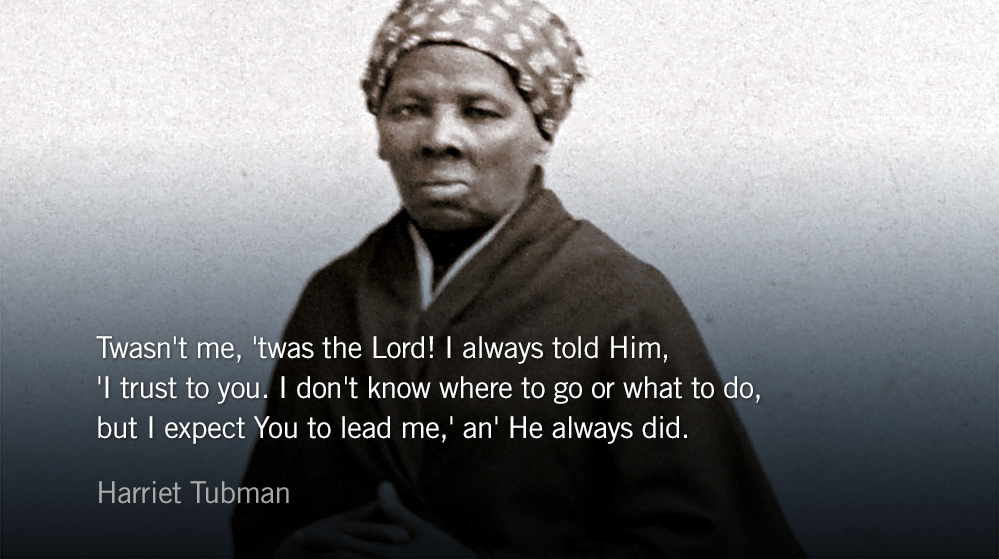By Robert Murray M’Cheyne (1813-1843)
Consider Jesus, the apostle and high priest of our confession. — Hebrews 3.1
When a traveller passes very rapidly through a country, the eye has no time to rest upon the different objects in it, so that, when he comes to the end of his journey, no distinct impressions have been made upon his mind; he has only a confused notion of the country through which he has travelled. This explains how it is that death, judgment, eternity, make so little impression upon most men’s minds.
In the same way the devil tries to make the children of God doubt if there be a Providence. He hurries them away to the shop and market. Lose no time, he says, but make money. Therefore God cries, Stop, poor sinner, stop and think; and Jesus says, “Consider the lilies of the field how they grow; consider the ravens, which have neither storehouse nor barn.”
In the same way does the Devil try to make the children of God live uncomfortable and unholy lives. He beguiles them away from simply looking to Jesus: he hurries them away to look at a thousand other things, as he led Peter, walking on the sea, to look round at the waves. But God says, Look here, consider the Apostle and High Priest of your profession: look unto me, and be ye saved.
In the Old Testament, the name by which he is oftenest called is the Angel of the Lord, or the Messenger of the Covenant. God anointed him and sent him to the work. In the New Testament, over and over again Christ calls himself, the sent of God. “As thou hast sent me into the world, so have I sent them into the world, that the world may know that thou hast sent me.” “And these have known that thou hast sent me.” All this shows plainly that it is not the Son alone who is interested in the saving of poor sinners, but the Father also. “The Father sent his Son to be the Savior of the world.”
The atonement has been made, Christ has died, his sufferings are all past. And how is it that you do not enjoy peace? It is because you do not consider. “Israel doth not know, my people doth not consider.” Consider: has Jesus died in the stead of guilty sinners, and do you heartily consent to take Jesus to be the man in your stead?
Today’s Reading
Song of Solomon 3 (Listen – 1:48)
Hebrews 3 (Listen – 2:25)






